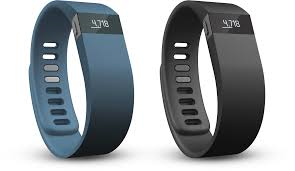10,000 Steps
During one of my PT sessions I was fascinated as to why my client seemed to regularly check his watch, was he running late for an important meeting? Or mentally recording how quickly he could get through his supersets? My curiosity led me to ask outright to find out that this was one of the smart watches known as a ‘FitBit’. He informed me that “You sync it with your smartphone, and it tracks your physical activity, sleep patterns and heart rate”. I couldn’t help but be a little intrigued but not fully convinced, possibly because what I know about modern technology you could easily write on a post-it note!
So, with more than a little bit of skepticism I convinced the wife to buy me a FitBit for Christmas, she reluctantly obliged and so the FitBit ‘charge’ arrived on Christmas day. It was the slightly less complicated version than my clients and lacked the Heart rate monitor function. I began to sync the FitBit as instructed by the little leaflet that it came with and began my journey with what is now (according to my wife) a bit of an obsession.
Why 10,000 steps?
The main thing you are challenged with is the target of 10,000 steps a day, sounds a lot but if your job is more than sitting behind a desk then you will smash that target, I easily hit 17k + on a normal day, and are currently on 2,916 at 10:30am even though a huge chunk of that is sitting here at the desk writing this blog. When you hit that magic target the wristband vibrates which is strangely rewarding.
So where did 10,000 steps come from? It's believed that the concept of 10,000 steps originated in Japan in the run-up to the 1964 Tokyo Olympics, says Catrine Tudor-Locke, an associate professor at the Pennington Biomedical Research Centre at Louisiana State University. Japan's Ministry of Health, Labour and Welfare, for example, recommends "a daily walk of 8,000 to 10,000 steps". The UK National Obesity Forum says that a person who walks between 7,000 to 10,000 steps a day qualifies as "moderately active". I suppose this is a new twist on the ’30 minutes’ of activity a day.
Electronic minder
After wearing it now for a month I can see why it’s so popular. There’s a strange need to accomplish each goal that the FitBit challenges you to, a real sense of failure when a target does not turn green because you didn’t hit it, and the determination to then pace round the house if you’ve had a quiet day and its now 10:45pm and you’re 1300 steps away from the magic 10,000. Sundays are usually the quietest for me but the under 11’s football team that I coach don’t always play to their abilities and I end up pacing up and down the sideline with my fellow coach which is doing wonders for my step challenge but not so good for my mental state.
I have removed the FitBit on occasions and there is a strange sense of freedom knowing that there isn’t an electronic minder judging your activity levels, but then you begin to think that walking a few miles, or even running up and down the stairs, suddenly seemed pointless, since, without the steps being counted and registered, what use were they?
Verdict
I started this experiment with some doubts but overall I’m quietly impressed. For me this just confirms that I’m actually a very active person, with a job that not only promotes activity, but even the everyday elements to the role keep me moving, so its time for me to increase those targets. Yet, for those that have a more sedentary lifestyle, these new gadgets are a good challenge and from what I hear, are getting people out of their offices and walking the streets at lunchtime, which can only be a good thing right?
According to the NHS, the average Briton walks between 3,000 and 4,000 steps a day - significantly less than the Fitbit target. Yet many people do significantly more, and for them 10,000 steps might not be much of a target.
"If you run three times a week, you're not going to get fitter by walking 10,000 steps," An NHS representative explains. "You're already quite fit. You're going to need to do more to get fitter than someone who is chronically unfit and inactive. For them, walking 5,000 or 10,000 steps a day will improve their fitness."
Simply, the FitBit and various other activity trackers get people moving in the right direction, which hopefully leads them into a more active lifestyle, which keeps people in my profession busy.

